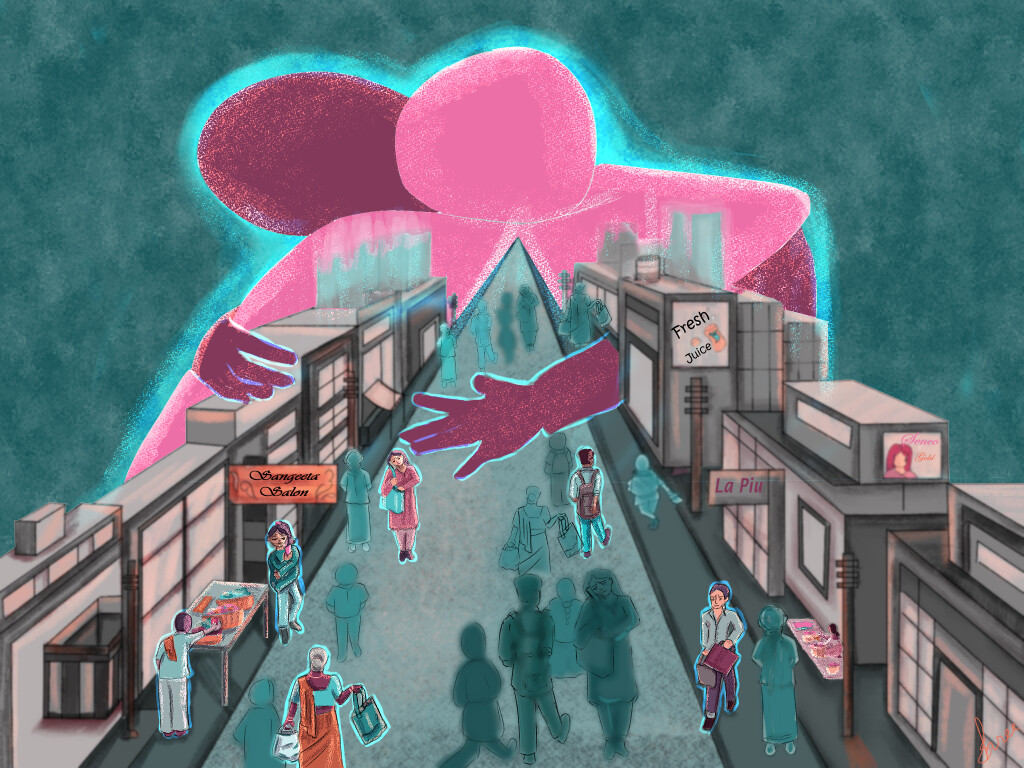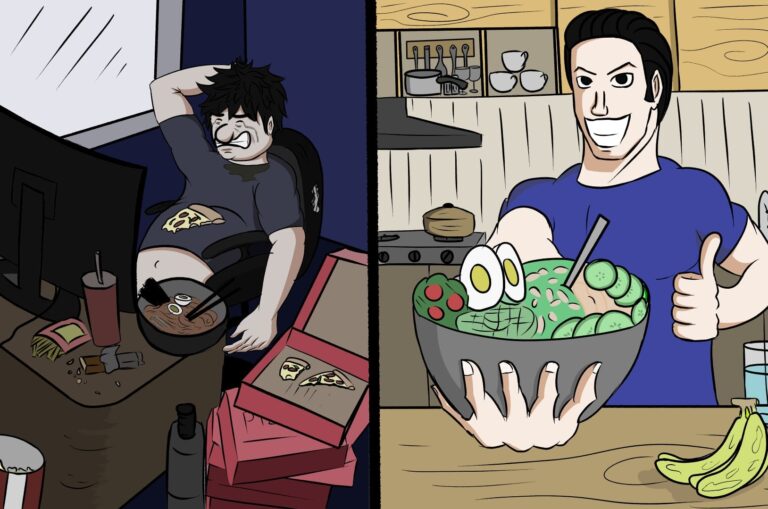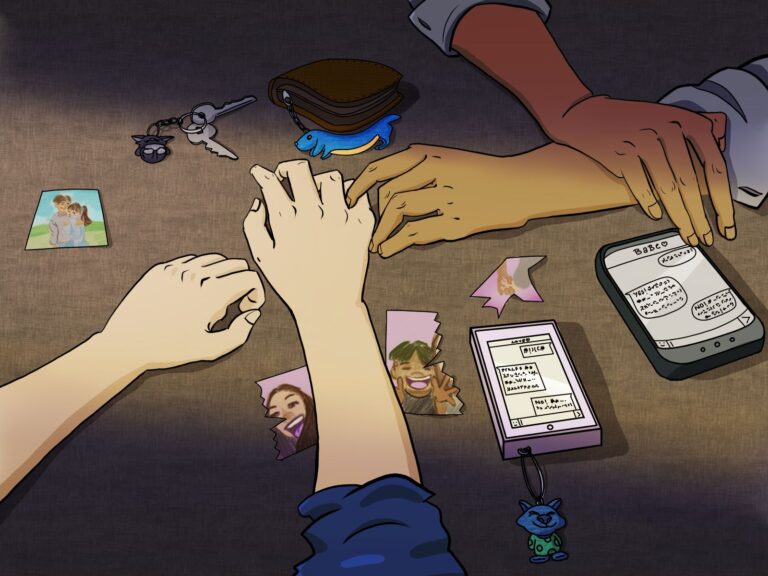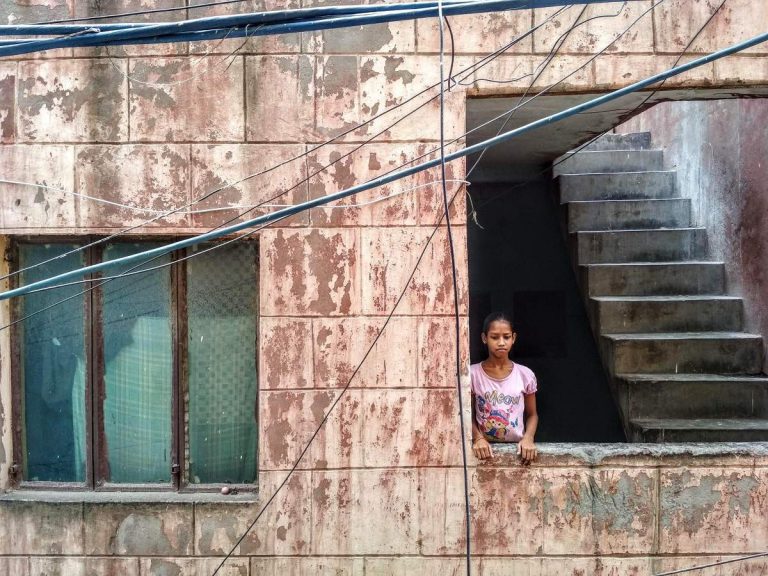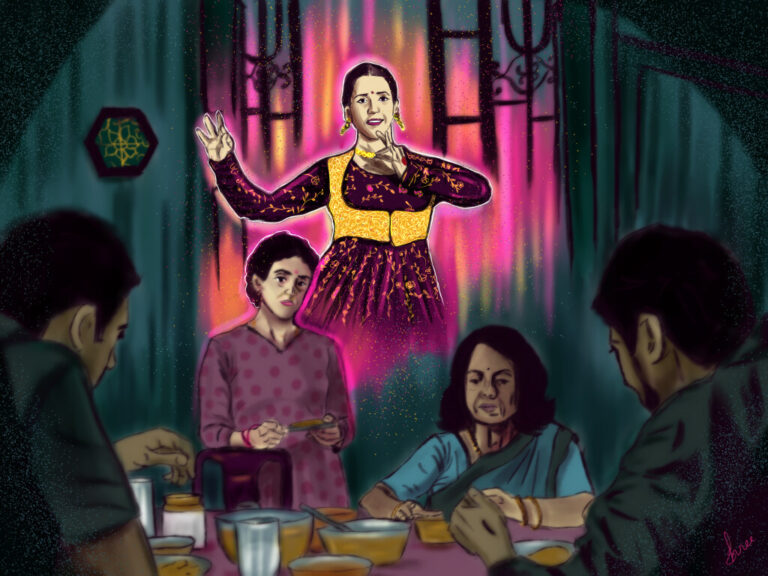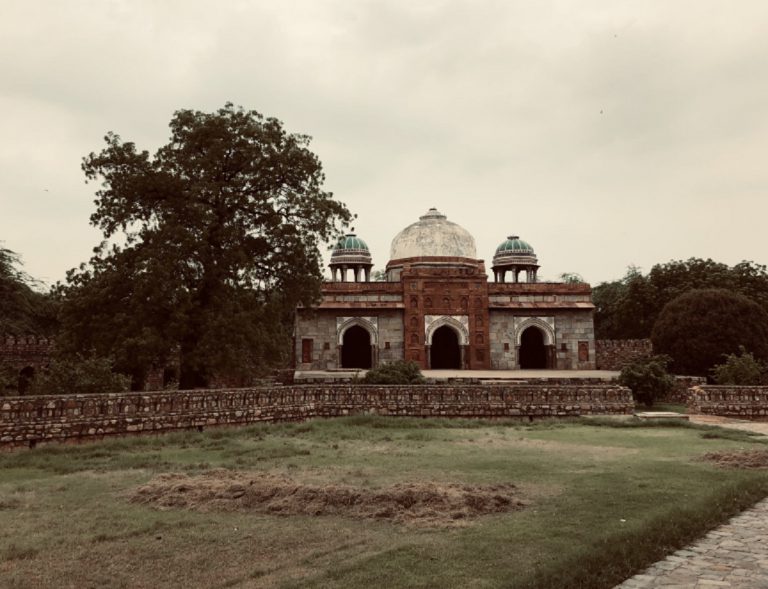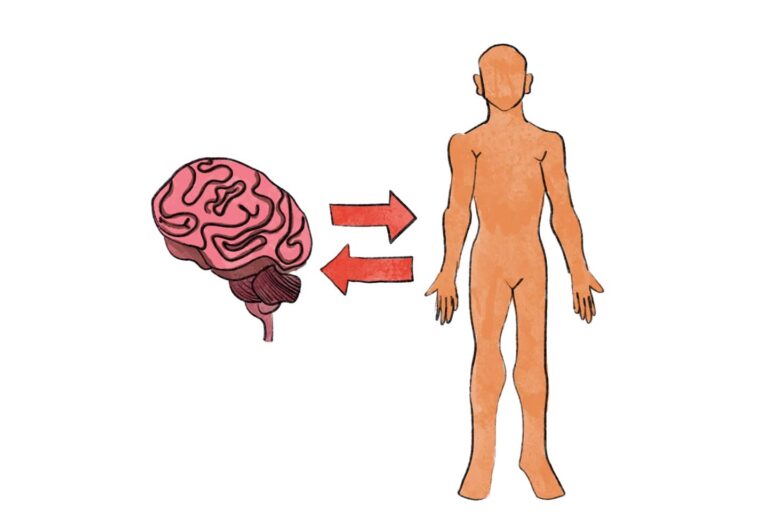Monetised Friendships: Bridging lonely hearts and broken careers?
Anuraag is a ‘Contributing Writer’ at the journal.
On the eve of Valentine’s Day this year, posters advertising for ‘Rented Boyfriends’ or Rent A Boyfriend appeared in the precincts of the city of Bangalore[i]. Allegedly the posters offered single girls an opportunity to hire a ‘boyfriend’ of their choice to spend time and possibly cuddle with during the festival of love by scanning a QR code and renting the ‘boyfriend’ for a day only for ₹389. As expected, this bold and ‘not-so-innovative idea’ (inspired by similar initiatives in Japan[ii] and South Korea) brought out Boomer generation[iii] neighbourhood uncles and aunties (along with a bunch of Millennials adhering to ‘traditional values’) collective angst against the ‘degradation of societal values and the commodification of relationships’ with the Bengaluru police apparently indulging in ‘poster hunt’ and tearing them down.
On further examination, it appears that the above incident, far from being an anomaly in the Indian social life and dating landscape, has become a norm with similar endeavors undertaken in Mumbai during 2018. In the city of Bangalore itself, the trend has caught up in the relatively ‘moralistic Boomer free zone’ of Instagram and dating apps[iv] where one can hire either boyfriend or a girlfriend for a variety of festivals and social occasions ranging from date night, shopping spree and adventure trips to accompanying on funerals. The prices are set as per the requirements of the occasion− ₹600 for an hour with coffee, ₹1000 for dinner with parents and some charging based on duration of time spent including ₹ 5000 for two hours. A new addition to such service is the idea of a ‘dating surrogate’ who accompanies you on a date with the aim of giving the customer an experience of one and providing feedback at the end on issues such as mannerisms, the art of striking conversations and other areas for improvement while on a real date. All of these, of course, for a hefty fee. At the same time, it should be reiterated that none of the above arrangements involve any kind of sexual or intimacy contact and are confined only to meeting, socializing and accompaniment.
Taking the broader picture, such ‘anomalies’ (dependent one’s perspective) to the in-built or ‘natural’ Homo Sapien capacity for finding a date or friend for social activity were cited in the beginning of the article to bring into the picture the bigger ailment confronting us all− the global and widespread epidemic of loneliness.
Epidemic of Loneliness
Yes, citizens and non-citizens across the globe are faced with an ‘epidemic of loneliness’ as declared by the World Health Organisation (WHO) in 2023 whose morality effects are equal to ‘smoking 15 cigarettes a day’[v]. This epidemic is especially pronounced among the Gen Z or Zoomers[vi] and the Millennials, despite the latter’s mastery of technological prowess and coming of age in the era of the boom of social media platforms (Facebook, WhatsApp, Instagram, etc). Concomitant to this loneliness epidemic has been the rise of an ‘unhappy generation’ as per an article in The Atlantic[vii].
Based on the findings of a survey conducted by the Human Flourishing Program of the Harvard Institute for Qualitative Social Science, one of the key findings of “how young adults in today’s era of technologically mediated socializing are lacking real-life human contact and love—without which no one can truly flourish” strikes at the root of the phenomenon. Despite having multiple friends and contacts throwing away likes and love reacts and shares on the reels or posts, it is the acute scarcity for deep human emotional contact which lies at the core of the pandemic among today’s early adults. This pandemic is much more pronounced among men than women, with the rise of ‘friendship recession’ of male friendships[viii] with the Survey Centre on American Life stating that 15% of American men saying that they do not have close friends compared to 3% in 1990. And with the rampant rise and ravage caused by the Gen Z age new ‘dating and socialising vocabulary’ of Ghosting, Breadcrumbing and Situationships[ix] etc (and other similar aberrations) on genuine human contacts (whether romance, bro-mance or any kind of mance), the future appears quite bleak.
Urban Loneliness
Numerous factors have been cited by experts and scholars leading to the rise of an unhappy and lonely generation. These include but are not limited to excessive screen time at the cost of pursuing human relations, the breakdown of traditional institutions such as the joint family and the wider kin/ neighbourhood community, the rise of cynicism fuelled by the scarcity of deep emotional connect, the rapid rise of migration from hometowns in search of opportunities and the prevalence of ‘hustle culture’[x] (pursuit of productivity till exhaustion) in the modern work office leaving no time and energy for developing social bonds. Taken together, the latter have laid the ground for the emergence of the phenomenon of ‘Urban Loneliness’[xi]. The latter refers to a situation whereby individuals, especially migrants, are gripped by feelings of loneliness and isolation despite inhabiting an urban setting teeming with people and the reasons for this ‘loneliness’ are often the same as cited earlier. Most importantly, from a socio-political and even security perspective, this phenomenon has led to the rise in the number of individuals subscribing to extremist ideologies[xii] of every hue− religion, race, ethnicity, and nationalism.
A clear manifestation of the above, as confirmed by recent psychological and sociological studies conducted by de-radicalisation organisations such as Active Change Foundation (ACF), has been the instances of disillusioned Muslim youth from Western societies joining the ranks of ISIS[xiii] or White youth readily accepting xenophobic and anti-immigrant ideologies in Europe[xiv]. While it is easy to lay blame upon habits related to over-exposure to social media such as brainrot[xv] (mindlessly scrolling through social media leading to the gradual decline or rot of intellectual capacity. Also, the Word of the Year 2024 as per Oxford) and doomscrolling[xvi] (the constant consumption of negative news leading to heightened feelings of anxiety and other negative emotions), at the core lies the issue of loneliness and the need for companionship and validation. Membership to such groups (ISIS, White Supremacist) often gives individuals alienated or feeling ‘rejected’ by their current social settings a sense of community as well as validation and acknowledgement of their existence by their fellow comrades or brothers-in arms. Hence, urban loneliness or loneliness is a danger not only at an individual level but also at societal and global levels.
Zhang Xianzhong Incident
Another related danger is the uptick in the phenomenon known as Zhang Xianzhong incidents[xvii] in China. Also known as ‘social retaliation’ or ‘revenge against society,’ the incidents are marked by the mindless killing of innocents by disgruntled assailants who, after having lost their faith in state institutions (government, judiciary, and police) view such activities as an outlet to vent out their frustrations and send a message. The etymology of the term is derived from Zhang Xianzhong, a peasant rebel leader who rose to prominence during the twilight years of the Ming Dynasty in the 17th century and is alleged to have mindlessly massacred more than 60 million innocent subjects as a result of paranoia on being with inevitable defeat at the hands of the Qing dynasty, the successor to the Ming. The most recent manifestation of the above took place in November last year in the Chinese city of Zhuhai[xviii], where a 62-year-old man, apparently unsatisfied with the financial settlement of his recent divorce, rammed his car at a sports centre killing 35 people and severely injuring 49 others. This constituted just one incident among others involving similar car ramming or even stabbing witnessed in recent times[xix]. However, such spates of violence are not confined to any particular geography or region and have emerged as another ‘global epidemic’ infecting the world including India.
Flipping through the pages of any Indian daily and one is exposed to weird incidents of homicide numbering more than the advertisements. The motives behind the murder are more bizarre− refusal to give a birthday treat[xx], dispute over taking one’s pet dog for a walk[xxi] and even demanding an extra piece of chicken[xxii]. While detractors might say that the earlier cited incidents cannot qualify as ‘Zhang Xianzhong’ given the discrepancy in casualties and scale as well as the trivial nature of the grievances (birthday treat, chicken piece), yet in both cases resort was taken to drastic violent measures for solving issues which could have been resolved otherwise amicably or in non-violent ways. Taken together with urban loneliness, continued isolation and alienation with the lack of any meaningful connections often creates the fertile ground for development of paranoia, desperation, hopelessness, and anger ultimately culminating in such acts of mindless violence. Not to mention the acute shortage of mental health professionals and workers in the Indian landscape[xxiii].
Communities of Interest and Human Library
While the picture appears grim, yet there has been some pushback to the above through new and innovative ways especially by the current generation. These include building ‘communities’[xxiv] centred around common pivots including hobbies, interests and other facets which can take numerous forms ranging from book-clubs, joggers’ communities and badminton or football clubs to gatherings of post-card makers and dog lovers. Another major platform has been the Human Library[xxv] initiative in India. Originating from Denmark in 2000, the Human Library involves the borrowing and ‘reading’ of life people instead of books by listening to their experiences ranging from sensitive topics such as homosexuality and systemic discrimination to mundane things like cooking, adventure sports etc. Both of them involve the coming together of strangers inhabiting the same city or locality and forging bonds of communion and support otherwise denied by the current fast-paced lifestyle.
Yet, a major drawback of the above is that these have taken root and are mostly confined to metropoles such as Delhi, Mumbai, Bengaluru, and Hyderabad marked by conditions such as large immigrant population and the abundance of space (parks, cafes, beaches, playgrounds) facilitating the rise of the same. While similar undertakings have started in Tier-2 cities, yet they are in their nascent stages or miniscule in number often going unnoticed. Largely such ideas are often alien or unknown to large swathes of the populations beyond metropoles. Another major hindrance is the roadblock provided by socialisation and character/ personality traits (in my perspective) of individuals which might not allow the easy and smooth formation of bonds with strangers. This is exhibited in the case of Indian men who are often socialised to the values of being stoic, independent and stout-hearted[xxvi] which results in the creation of individuals unable to express themselves emotionally and form in-depth ties. Also important is the typical Indian parenthood emphasis on scoring marks not below 90 over cultivating the art of making friends and other social relationships which are often seen as ‘waste of time’. These challenges are further compounded for individuals falling within the category of ‘Introvert’ personality who are often marked by a tendency and dislike for crowds and large gatherings.
The above is personally true in the author’s own context who has been compelled to migrate to Vadodara, a Tier-2 city in Gujarat due to academic commitments of the current PhD programme he is a part of. With my roots in Guwahati, Assam the migration from the ‘extreme East’ across the Chicken’s Neck[xxvii] to the ‘extreme West’ of India and the habitation here since the last three months has been the inspiration behind the current article. Lack of linguistic skills in Gujarati (despite its comprehension by me due to its similarity with Hindi), staying in a rented room away from the campus premises and the rigour of academic research work even on weekends were enough to create conditions of urban loneliness. Add to that the vast divergence and incongruence in terms of gastronomical and culinary taste (veg- non veg/ sweet- spicy) and other interests. The peculiarity of my situation, in my words, was that a devotee of Saraswati (Knowledge/ Academia) found himself amongst the followers of the cult of Kubera (monetary wealth) where it was not uncommon to encounter young 12th Board pass outs preparing ardently for Bachelors in Business Administration (BBA) or MBA with the intent of joining the family Bijness and expanding it to other parts of the state or country. As one of my Gujarati friends wryly remarked−Kaun Gujarati History, Political Science ya International Relations (IR) padhega? (Which Gujarati will pursue History, Political Science, or International Relations as career pathways?) In this background, where can find a localite with whom I can have hours of uninterrupted conversations on international or geopolitical happenings or my research topic? Or most importantly find another being who can understand and empathise with the mental and emotional challenges of Indian PhD life? That too, amongst those who cannot see beyond profit graphs and balance sheets.
Compounding the above is my personality trait of INTJ (Introvert Intuitive Thinking Judgemental)[xxviii] with the I or Introvert nature being prominent in my being as per the Myer-Briggs Type Indicator (MBTI)[xxix]− a test involving questionnaire that determines one’s personality among the 16 identified types. Though MBTI could result in a personality trap as it appears to confine an individual into restricting oneself to what the test labels one as, as per the MBTI, Introvert personalities like myself have a hard time socialising given our ‘unconventional tastes and ways of thinking. Not to mention our disdain and ‘allergy’ for large crowds and gatherings. Despite the tide of criticism levelled against the MBTI as a ‘pseudo- psychology’ or ‘pseudo-science’[xxx] in the Psychology community, yet it rightly predicted the overwhelming presence of I (Introvert) within my personality if not the other characteristics (N, T & J). Hence, the twin problems of lack of social skills and the dominant introvert aspect automatically disqualifies me and other fellow Indian introverts from being part of any club or community. And the double whammy lies in being located at an alien Tier 2 city where finding the lowest common denominator whether in terms of food or interests appears next to impossible.
Where lies our salvation?
Monetisation of ‘Loneliness’ as a solution to Unemployment
Here comes the core or the crux of the article− a solution not only to the crisis of loneliness faced by the likes of me but also the general issue of increasing unemployment gripping the current Indian economy. The gravity of the same was underlined by ‘The India Employment Report of 2024’ produced by the International Labour Organisation (ILO) presented a bleak picture of India possessing the highest portion of educated unemployed youth as well as the lack of qualifying skills for the job market[xxxi]. Also to be noted in this context is the fast-paced development of Artificial Intelligence (AI) related technologies by leaps and bounds and the further narrowing of the pool of job market and intensification of cutthroat competition for limited opportunities of employment in the near future. This, along with urban alienation and its attendant mental and emotional stress and anxiety would pave the ground for the explosion of Zhang Xianzhong incidents on a much larger scale and of greater intensity.
A possible solution in my view is the ‘monetisation’ of the current loneliness grappling the average Millennial/ Gen Z Indian and by extension, transforming it into an employment opportunity for the latter. Similar to ‘Rent A Boyfriend/ Girlfriend,’ a platform titled ‘Rent A Friend’ should be developed to cater to the demands of the 21st century lonely Indian, especially introverts like myself. However, instead of romantic or dating relationships, the focus would be on the development of platonic relationships or ‘bromance’ and ‘sis(sister)mance’ or ‘bro-sis mance’ (platonic relationship involving male and female) based on shared interests or hobbies. Suggested filters could include hobbies, favourite sports, movies, stars, topics of conversation and many more. Preferences could also be fine tuned to occasion and type of gathering such as meetup over tea/coffee or lunch/dinner, going to a movie of similar taste together, going on hiking or long drive to shared destinations or even celebration of birthday with your ‘hired friend.’ However, all of these activities should be monetised according to criteria such as the nature of meetup and the duration of ‘hiring’ the friend.
Service providers and customers alike could be drawn from the urban lonely demographic identified above including introverts, given their preference for ‘bilateral’ meetups (one on one) rather than ‘multilateral’ loud gatherings (multi-friend groups/ gangs) − apologies for using terminology from my research field of IR. For service providers, while it cannot replace real employment in times of skyrocketing costs of living and prices, yet the amount earned would be enough to cover expenses of mundane stuff such as grocery and other expenses. For the employed, this could be a source of extra income as well as means to let out steam after a grinding day in the Indian corporate realm. Most importantly, it would help in filling a void (even if partially) for the customers haunted by loneliness and alienation by allowing them to find a friend or companion far away from home. The above would turn out to be a blessing for introverts like myself in finding our own ‘rented friend’ customised to our preferences.
Historical precedents for the above include the hetaira[xxxii] of ancient classical Greek world who were courtesans trained not only in the art of music and entertainment but also as highly educated conversationalists for clients in fields such as philosophy and ethics. Similarly, there were the famed Geishas[xxxiii] of Japan whose expertise covered not only art, tea-making and playing instruments but also the art of striking deep and meaningful conversations. Both intriguing figures from history reduced to common prostitutes by the Western colonial gaze and Hollywood (especially the Geisha). Hence, the ‘Rent A Friend’ can be justified by drawing upon such traditions from the bygone era.
For those harping about such initiatives about it being ‘a sign of the decline of our times’ or those seeing it as an ‘attack on humanity or human relationships,’ I will say LET’S CUT THE CRAP.
The world confronting Millennials and Gen Z is already in decline marked by a degree of hopelessness and naked decadence never seen earlier[xxxiv]. Decline in the quality of life, relationships, economic condition, political atmosphere, and the environment− you name it. Especially in the realm of love and romantic life, where 1 out of 4 adults are destined to stay single/ unmarried throughout their lives as per Pew Research Centre[xxxv]. And matrimonial alliance seems fatal in the age of ‘killer spouses’[xxxvi] and ‘jilted lovers’ as seen from daily headlines. Work-life balance has to be sacrificed at the altar of the office cubicle as an offering to the New Era Gods of ‘Hustle’ ranging from Narayana Murthy to Jack Ma and Elon Musk[xxxvii] without any incentive or improvement in life in return. All of these create the perfect cocktail for the Zhang Xianzhong incident on a global scale, including World War 3. After all, don’t wars and conflicts start from basically unhappiness and anxiety?
If India wishes to see itself being granted entry into the club of Viksit (Developed) Nations, why not adopt some of their own solutions to tackling loneliness however imperfect or ‘immoral’ they might appear? After all, isn’t ‘monetised loneliness’ the hallmark of developed nations like Japan and South Korea whom we wish to emulate?
To address the doomsday scenario at both the personal and global level staring us in the face, the ideas enunciated above should be given a chance. At least, keeping in view the urgency of the current era. One might consider the argument that such ‘monetised friendships’ cannot replace the genuine human friendships formed organically. But as reiterated earlier, the current atmosphere is becoming less conducive for survival, let alone formation of the same. At the same time, it also cannot be ruled out that two strangers meeting as service provider and client might end up becoming friends or ‘besties’ for life. A transactional relationship evolving into a ‘traditional’ and genuine one. But for that, if John Lenon said ‘Give Peace A Chance’[xxxviii], let me say ‘Give Monetised Loneliness a Chance for Personal and Global Peace’.
As Lord Bobby (Deol) sang in Gupt (1997) −
Duniya Haseeno ka Mela. Mele mein yeh Dil Akela. Ek Dost dhoondta hoon Main Dosti ke liye”[xxxix]
(The world is a fairground for beautiful damsels. I am a lonely heart at the fair. I am searching a friend for friendship).
If not Haseena, at least everyone deserves a Dost in today’s trying times.
References
- ‘Rent a boyfriend trend could harm values in Bangalore’, News Karnataka, 15 February, 2025 (https://newskarnataka.com/karnataka/bengaluru/rent-a-boyfriend-trend-could-harm-values-in-bangalore/15022025).
- ‘Unlucky in love? Rent a Girlfriend or Boyfriend for a Hefty Price in this Country!’, Times Now, 16 July, 2023 (https://www.timesnownews.com/viral/japan-girlfriend-rent-boyfriend-for-price-viral-news-article-101794904).
- Baby boomer, Britannica (https://www.britannica.com/topic/baby-boomers).
- ‘Boyfriend and Girlfriend on Rent Services take the Dating World by Storm’, Outlook, 15 February, 2024 (https://www.outlookindia.com/culture-society/boyfriend-and-girlfriend-on-rent-services-take-the-dating-world-by-storm)
- ‘WHO declares loneliness as a global public health concern’, The Guardian, 16 November, 2023 (https://www.theguardian.com/global-development/2023/nov/16/who-declares-loneliness-a-global-public-health-concern#:~:text=It%20comes%20after%20the%20Covid,compared%20to%205.3%25%20in%20Europe.)
- ‘India’s loneliness crisis explained: Why Gen Z is feeling more isolated than ever’, The Indian Express, 16 April, 2024 (https://indianexpress.com/article/lifestyle/life-style/loneliness-epidemic-crisis-mental-health-gen-z-isolation-9245365/)
- Brooks, Arthur C, ‘Why are Young People Everywhere so Unhappy?’, The Atlantic, 1 May, 2025 (https://www.theatlantic.com/ideas/archive/2025/05/young-people-global-unhappiness/682632/)
- ‘An uphill battle: why are midlife men struggling to make- and keeping- friends?’, The Guardian, 10 July, 2025 (https://www.theguardian.com/wellness/ng-interactive/2025/jul/10/male-friendships-midlife)
- ‘Ghosting, Orbiting, Breadcrumbing, and other Modern Relationship Terms Explained’, The Manual, 27 January, 2023 ( https://www.themanual.com/culture/modern-relationship-terms-explained/)
- ‘Hustle culture: Is this the end of rise-and grind?’, BBC, 20 April, 2023 (https://www.bbc.com/worklife/article/20230417-hustle-culture-is-this-the-end-of-rise-and-grind)
- ‘Urban loneliness: What it means and how to overcome it?’, The Free Press Journal, 22 July, 2022 (https://www.freepressjournal.in/weekend/urban-loneliness-what-it-means-and-how-to-overcome-it)
- ‘Extended Loneliness can make you more Vulnerable to Extremist Views’, Time, 3 November, 2022 (https://time.com/6223229/loneliness-vulnerable-extremist-views/)
- Jaffer, Nabeelah, ‘How to de-radicalize an extremist’, Prospect, 20 June, 2018 (https://www.prospectmagazine.co.uk/world/41346/how-to-de-radicalise-an-extremist)
- Jaffer, Nabeelah, ‘In extremis’, Aeon, 19 July 2018 (https://aeon.co/essays/loneliness-is-the-common-ground-of-terror-and-extremism)
- ‘Brain rot named Oxford Word of the Year 2024’, Oxford University Press, 2 December 2024 (https://corp.oup.com/news/brain-rot-named-oxford-word-of-the-year-2024/)
- ‘How to Finally Stop Doomscrolling?’, Cleveland Clinic, 6 May, 2024 (https://health.clevelandclinic.org/everything-you-need-to-know-about-doomscrolling-and-how-to-avoid-it)
- Deepak, BR, ‘China reeling under Zhang Xianzhong phenomenon’, Sunday Guardian, 24 November, 2024 (https://latest.sundayguardianlive.com/opinion/china-reeling-under-zhang-xianzhong-phenomenon)
- ‘Dozens killed in China after car driven into sports centre’, The Guardian, 12 November, 2024 (https://www.theguardian.com/world/2024/nov/12/china-car-driven-into-sports-centre-state-media)
- ‘China reels from spate of suspected ‘revenge against society’ attacks’, The Guardian, 22 November, 2024 ( https://www.theguardian.com/world/2024/nov/22/china-deals-with-violence-amid-revenge-against-society-attacks)
- ‘Three held for killing friend who refused to give treat’, Times of India, 24 September, 2024 (https://timesofindia.indiatimes.com/city/delhi/teen-stabbed-to-death-over-refusal-to-give-party-for-new-phone/articleshow/113643319.cms)
- ‘After cops falter, Delhi man who killed woman over dog gets bail,’ Times of India, 9 July, 2025 (https://timesofindia.indiatimes.com/city/goa/after-cops-falter-delhi-man-who-killed-woman-over-dog-gets-bail/articleshow/122327426.cms).
- ‘Karnataka Man Stabs Friend to Death for Demanding Extra Chicken at Wedding Party’, NDTV, 14 July, 2025 (https://www.ndtv.com/india-news/belagavi-man-killed-over-extra-piece-of-chicken-at-post-wedding-party-8871850)
- ‘Feeling Blue? But mental health workforce needs a boost’, Times of India, 10 October, 2024 (https://timesofindia.indiatimes.com/city/hyderabad/mental-health-crisis-urgent-need-for-more-professionals-in-india/articleshow/114096251.cms)
- ‘Loneliness epidemic- How new India is making friends’, The Hindu, 16 May, 2025 (https://www.thehindu.com/society/loneliness-epidemic-india-young-generation-reading-clubs-running-pickleball-bengaluru-delhi/article69478134.ece)
- ‘The Woman Behind India’s Human Library, Where the ‘Books’ are People’, CNBC TV18, 24 October 2019 (https://www.cnbctv18.com/buzz/the-woman-behind-indias-human-library-where-the-books-are-people-4585091.htm)
- ‘Indian men are facing a loneliness epidemic and we’re not talking about it enough’, The Indian Express, 10 February, 2024 (https://indianexpress.com/article/lifestyle/life-style/indian-men-loneliness-epidemic-9137641/)
- ‘Chicken’s Neck explained: Why this narrow corridor is crucial for India’s connectivity and regional security’, Times of India, 2 April, 2025 (https://timesofindia.indiatimes.com/city/guwahati/chickens-neck-explained-why-this-narrow-corridor-is-crucial-for-indias-connectivity-and-regional-security/articleshow/119897029.cms)
- ‘INTJ Architect’, 16 Personalities (https://www.16personalities.com/intj-personality)
- The Myers-Briggs Company (https://www.themyersbriggs.com/en-US/Products-and-Services/Myers-Briggs)
- Maguire, Larry G, ‘The Myers- Briggs Type Indicator (MBTI): Is it a Personality Pseudoscience?’, Human Performance, 11 July, 2024 (https://humanperformance.ie/myers-briggs-type-indicator-pseudoscience/)
- ‘Job outlook bleak: On the ‘The India Employment Report 2024’, The Hindu, 29 March, 2024 (https://www.thehindu.com/opinion/editorial/jobs-outlook-bleak-on-the-the-india-employment-report-2024/article68002417.ece)
- ‘Hetaira’, Wikipedia (https://en.wikipedia.org/wiki/Hetaira)
- ‘Geisha’, Britannica (https://www.britannica.com/art/geisha)
- Vijayan, Anilkumar Payyappilly, ‘Twilight of the Patriarchs: Hold Old Men Wage Wars on Futures that are not Theirs to Live’, The Wire, 23 June, 2025 ( https://thewire.in/politics/twilight-of-the-patriarchs-how-old-men-wage-wars-on-futures-that-are-not-theirs-to-live)
- ‘Rising Share of US Adults are living without a Spouse or Partner’, Pew Research Center, 5 October, 2021 (https://www.pewresearch.org/social-trends/2021/10/05/rising-share-of-u-s-adults-are-living-without-a-spouse-or-partner/#:~:text=The%20growth%20in%20the%20single,who%20have%20never%20been%20married.)
- ‘When women kill: Inside the minds of India’s killer brides- love, rage and murder’, Times of India, 18 June, 2025 (https://timesofindia.indiatimes.com/india/when-women-kill-inside-the-minds-of-indias-killer-brides-love-rage-and-murder/articleshow/121934943.cms)
- ‘Narayana Murthy to Elon Musk, Business Leaders who support Long Work Hours’, NDTV, 11 January, 2025 (https://www.ndtv.com/india-news/narayana-murthy-to-elon-musk-business-leaders-who-support-longer-work-hours-7448371)
- ‘Give Peace A Chance’, Wikipedia (https://en.wikipedia.org/wiki/Give_Peace_a_Chance)
- ‘Duniya Haseeno ka Mela’, Gupt (1997), Deol, Bobby, Narayan, Udit, YouTube (https://www.youtube.com/watch?v=RiUMVPpk0Fo&list=RDRiUMVPpk0Fo&start_radio=1)


